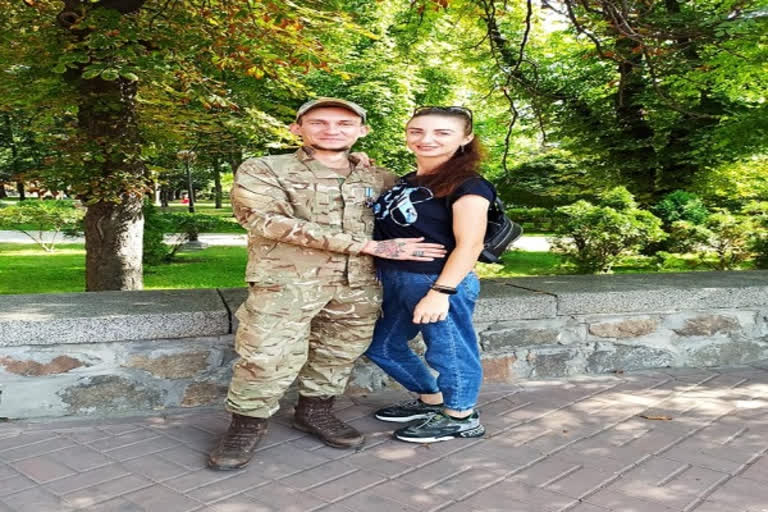Chubynske (Ukraine):In the last, brief conversations Viktoria Skliar had with her detained boyfriend, the Ukrainian prisoner of war was making tentative plans for life after his release in an upcoming exchange with Russia. The next time Skliar saw Oleksii Kisilishin, he was dead one of several bodies in a photo of people local authorities said were killed when blasts ripped through a prison in a part of Ukraine's Donetsk region controlled by Moscow-backed separatists.
For months, Skliar had held out hope she would reunite with her partner, who had been one of the defenders of the Azovstal steel plant, the last redoubt of Ukrainian fighters in the besieged city of Mariupol. Now, she has retrained her focus on getting his body back. Against enormous odds, Ukraine has now received the remains of dozens of prisoners who were held at the prison in Olenivka.
But with experts still needing months to identify all the bodies and no guarantee Kisilishin is among them Skliar's quest is far from over. That she even knows her boyfriend is dead is remarkable. She recognised his tattoos in a photo shared on social media following the July 29 blasts. It showed him laid out, semi-naked, on the ground in a line with eight other bodies.
When I saw the photo, my eyes did not go beyond Oleksii's body, Skliar told The Associated Press. I didn't have time to cry. I cried all my tears when they were in Azovstal. My first thought was to get the body back somehow. Skliar said she contacted representatives with the International Committee of the Red Cross, told them about the photo and gave them his name in the hopes that they'd be able to arrange for him to be brought home.
The humanitarian organisation couldn't tell her much the group had to wait for official lists of prisoners and agreements from politicians before it could help repatriate any bodies. While she waited for word, Skliar feared her loved one would end up in a mass grave. Kisilishin, who died at 26, was called back to the Azov Regiment, part of the Ukrainian National Guard, where he'd served until 2016, two weeks before Russia's invasion of Ukraine in February.
The animal caregiver and activist had chosen to return to defend his hometown of Mariupol, rather than stay in Kyiv, where he'd met Skliar at an equestrian club a year before. When Kisilishin was holed up at the Azovstal steel mill during a three-month siege of the city, they spoke every day until Russian forces encircled the plant. In May, he was captured when the last Azovstal defenders were told by Ukraine's military to turn themselves over to Russian forces.
From captivity, Skliar continued to have phone calls from him, though they never lasted longer than a minute. Her boyfriend said little about himself, responding only it's OK or bearable when she asked him how he was. Then, Skliar said she received a call from Kisilishin and his voice was cheerful. "He said that they will be taken somewhere. He hoped for an exchange, she said.
